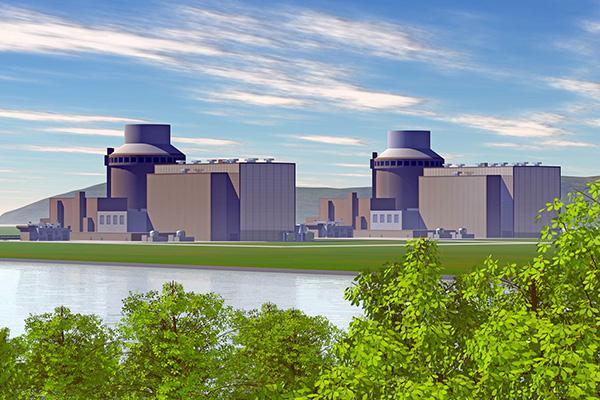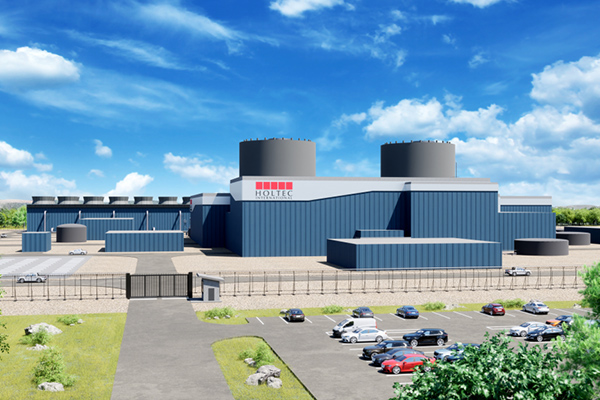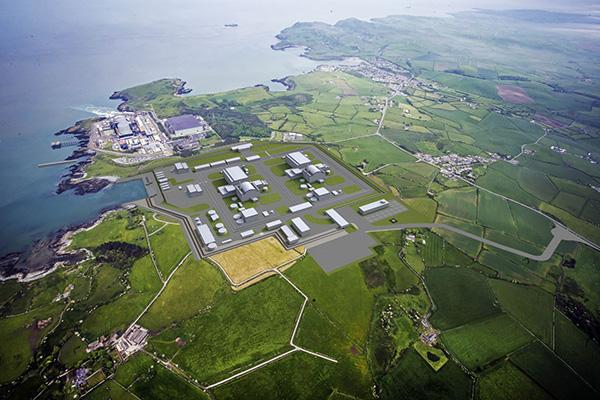Westinghouse Electric Company has announced that its AP1000 nuclear power plant design has successfully completed review by UK regulators.
The AP1000 has concluded the Generic Design Assessment (GDA) process, with the Office for Nuclear Regulation issuing a Design Acceptance Confirmation (DAC) and the Environment Agency issuing a Statement of Design Acceptability (SODA).
“The successful completion of this rigorous review by the ONR and the EA has been many years in the making, and it represents a major milestone toward bringing a new generation of safe, clean energy to the United Kingdom through the Moorside project,” said José Emeterio Gutiérrez, Westinghouse interim president and CEO. “In addition, it expands the global regulatory pedigree of the AP1000 plant design and further confirms Westinghouse’s innovative safety technology.”
New build developer NuGen plans to build three AP1000 units at the Moorside site in West Cumbria, providing up to 3.6GWe of new generation capacity.
NuGen CEO Tom Samson welcomed the news as a major step forward for Moorside: “This news from the UK regulators is further acknowledgement and a testament to the robust safety features and design of the AP1000 reactor which we will deploy at Moorside.
“Moorside’s three reactors will provide seven per cent of the UK’s electricity needs from a low-carbon source. This project will be transformational for Cumbria, and the North of England and will offer unrivalled employment, skills and supply chain opportunities in line with the government’s work on industrial strategy.”

Westinghouse initiated the GDA process in 2007. After receiving acceptance in 2011, the company paused the review process until NuGen selected the AP1000 plant technology in 2014.
ONRs chief nuclear inspector Dr Richard Savage commented: “The closure of our assessment of the generic design of the AP1000 reactor is a significant step in the process, ensuring the design meets the very high standards of safety we expect. We will now focus our regulatory attention on site specific assessments, and NuGen’s application for a nuclear site licence.”
Dr Jo Nettleton, deputy director for radioactive substances and installations regulation at the Environment Agency, said: “Successfully completing GDA means that the AP1000 is capable of meeting the high standards of environment protection and waste management that we require.
We’re already working with NuGen, as it develops its proposals to build and operate three AP1000 reactors at Moorside in Cumbria, to ensure that those high standards are delivered.”
The regulators required 51 GDA issues to be resolved before confirming the suitability of the AP1000. All of the issues have been addressed to the regulators’ satisfaction, enabling the DAC and SoDA to be issued. The regulators’ assessment reports are available online.
Westinghouse says that the three units planned at Moorside will benefit from its experience on the world’s first eight AP1000 units, which are currently being delivered at four sites in the US and China. Two units each are in the final stages of completion at the Sanmen and Haiyang sites in China, with an additional two units each under construction at the VC Summer and Vogtle sites in the US.
Westinghouse’s US business has meanwhile filed for Chapter 11 bankruptcy protection to enable strategic restructuring amid financial and construction challenges in its US AP1000 projects. NuGen says the move will not affect the Moorside project.
NuGen’s in-house design authority will now take ownership of and responsibility for the design in relation to the AP1000 reactors at Moorside. Nugen will lead on engagement with regulators as it progresses its applications for a nuclear site licence, and works towards gaining consents and permits to construct, operate and eventually decommission Moorside .
- To find out about entering NuGen’s supply chain, go to Supply to Moorside.




